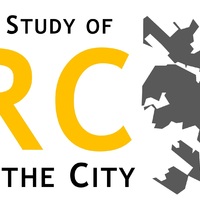Jews United For Justice, Interview #3
This item originates from American Jewish Life.
- Title
- Description
- Table Of Contents
- Date Created
- Interviewer
- Interviewee
- Community
- State
- Place
- Genre
- Institution
- Subject
-
Jews United For Justice, Interview #3
-
The Baltimore chapter of Jews United for Justice, (JUFJ) is a grassroots community that seeks to repair the world by working locally for social, racial, and economic justice. A housing crisis in on the horizon. In this moment of uncertainty, it is critical to make sure our Baltimore City government protects its most vulnerable residents. During this crisis JUFJ, which organizes Jews around local policy issues, is mobilizing our community and using our power to amplify the voices and needs of those most directly impacted by injustice. JUFJ continues to organize for valuable housing protections. With our partners, we won an eviction moratorium to last until 90 days after the crisis. We are working to extend that. Our coalition is also advocated for late fees cancellations, rent rates to be frozen, and for additional money for rental assistance from the state and city government. Thanks in part to our advocacy, 300 of 700 people in the Baltimore shelter system are in hotels. We continue to work with our partners to get everyone using the shelter system into safe housing now. The CSRC grant will help support our efforts to bring about a more just housing system in Baltimore. Additionally, we will partner with the CSRC by providing an internship opportunity for 1-2 Morgan students to work collaboratively with our organization and with our partners: the Public Justice Center to learn about professional careers in organizing, advocacy, and legal support as interconnected activities.
-
"2:00: How has the organization held religious events in the wake of social distancing?
6:13: Discussion on panel held in earlier October (renters night)
8:48: Discussion on Tisha B'av holiday
9:25: New celebrations due to coronavirus/new ways to celebrate due to social distancing
13:25: ""virtual makes it easier to connect""
14:00 : Does social media help build community?
14:03: ""important not to rely on social media""
18:45: ""social media has its benefits, might lead to something, but not if it's not tied to something""
20:11: Has ""small talk"" in zoom conversations changed since our last conversation?
21:38: ""taking more time to check in""
23:00: What will your organization continue to do after social distancing is lifted?
24:38: ""Giving people space is important""
26:00 : Events that are likely to happen virtually post pandemic
28:35: ""there are clear advantages to having some things virtually/remote""
31:09: Discussion on importance of rest
34:00 : ""what is rest/rejuvenation besides sleeping and watching tv""?
36:07: ""thinking of rest spiritually, physically, and mentally""
36:36: Rate of government response to coronavirus
40:39: ""making water more affordable""
40:56: ""many water bills wrong""
42:13: How organization is helping members deal with loss?
46:34: ""hard not being able to comfort loss due to social distancing""
49:29: How organization helps members deal with mental health?
53:50: What resources does the organization/members need due to coronavirus?
57;36: How have members of organization previous life experiences helped cope with the coronavirus pandemic?
1:00:00: What else should we know about organization?
1:02:17: Role of identity conversation "
-
October 27, 2020
-
Abel Gomez
-
Ariel Mejia
-
Kayla Wheeler (Advisor)
-
Rianna Lloyd
-
Jews United for Justice
-
Maryland
-
Baltimore
-
oral history
-
housing
-
water
-
mental health
-
social media
